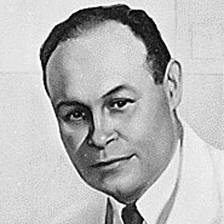
Dr. Charles Drew was a brilliant African-American physician and was famous for his pioneering work in blood preservation. He was born on Jun. 3, 1904 in Washington, D.C. He attended Amherst College in Massachusetts, where he earned the Mossman trophy for the man who contributed the most to athletics for four years. He then taught biology and was a coach at Morgan State College in Baltimore. He went on to enter McGill University School of Medicine in Montreal. He received his MD degree in 1933. He earned his Doctor of Science in Surgery at Columbia University.
On Oct. 1, 1940, Dr. Charles Drew was named supervisor of the “Plasma for Great Britain” project. He supervised the successful collection of 14,500 pints of vital plasma for the British. The NAACP awarded him the Spingarn Medal in 1944 in recognition of his work on the British and American projects. Virginia State College presented him an honorary doctor of science degree in 1945, as did his alma mater Amherst in 1947.
Dr. Charles Drew died after he was transported to a hospital after a car accident. Ironically, it is rumored that he died because he was denied a blood transfusion.
In his honor, Dr. Charles Drew University of Medicine and Science was named after him. The University, in its emphasis on service to the community, draws its inspiration from the life of Drew, whose short 46 years were full of achievements, learning and sharing of his knowledge to benefit mankind.




